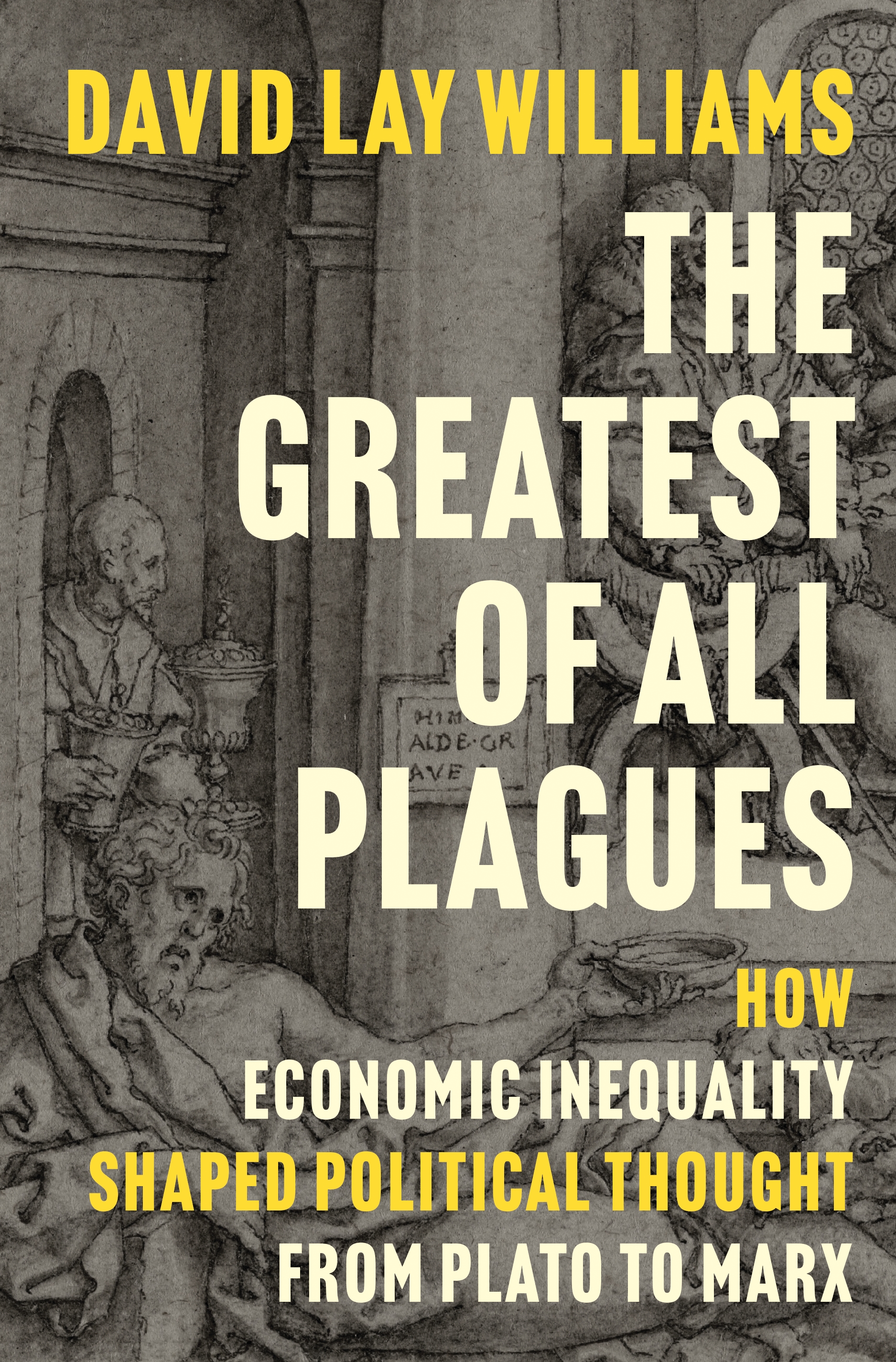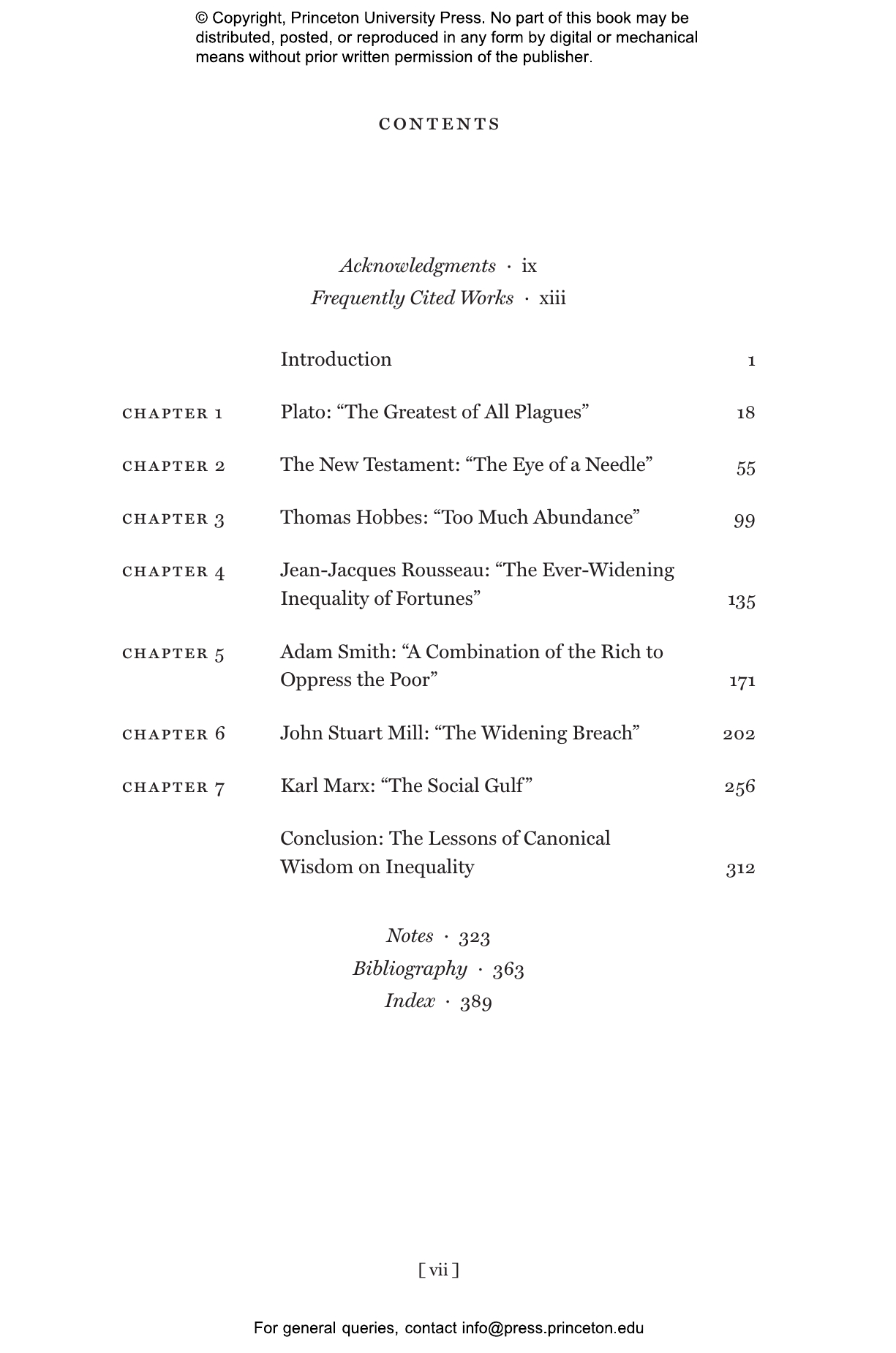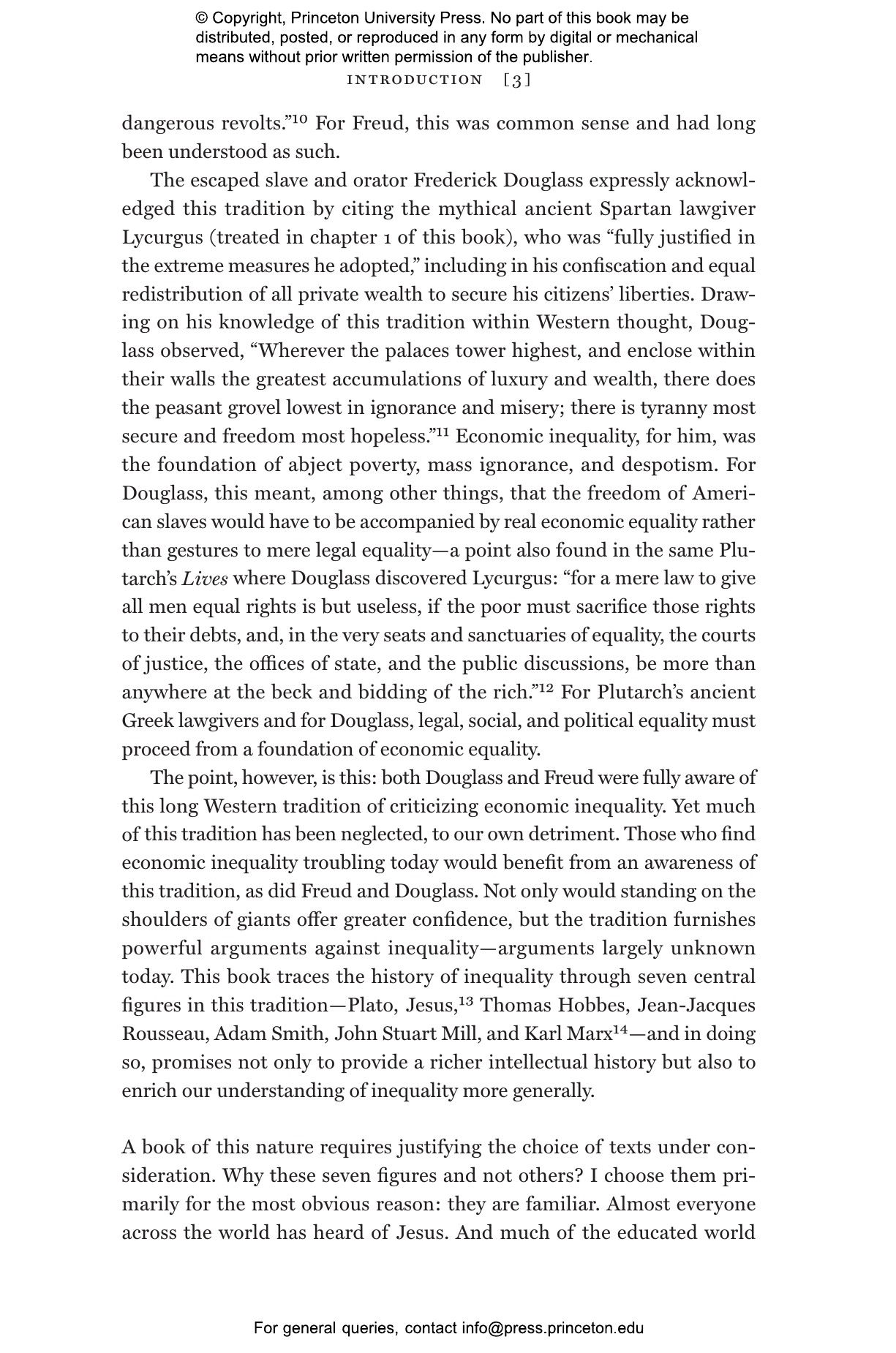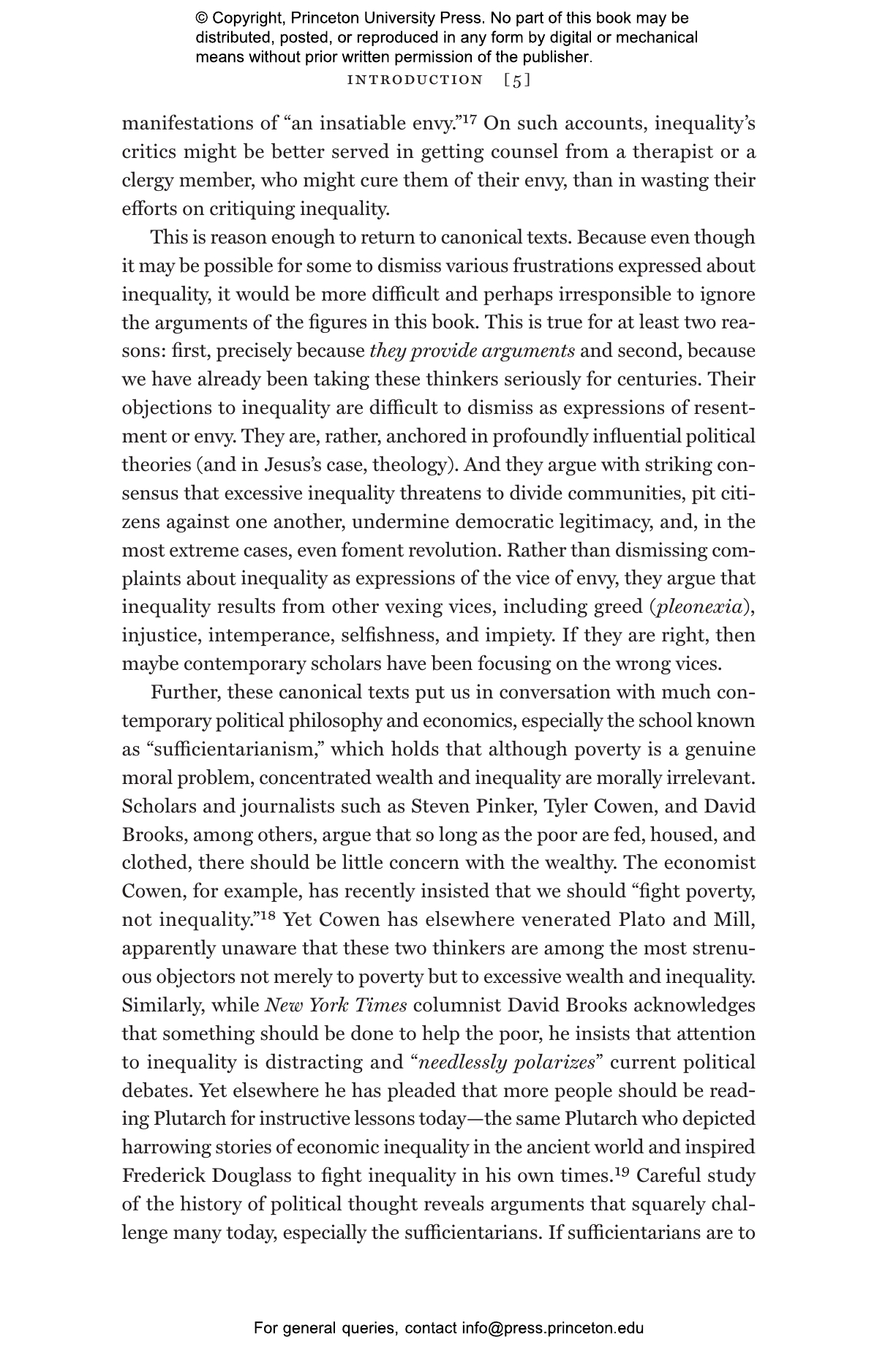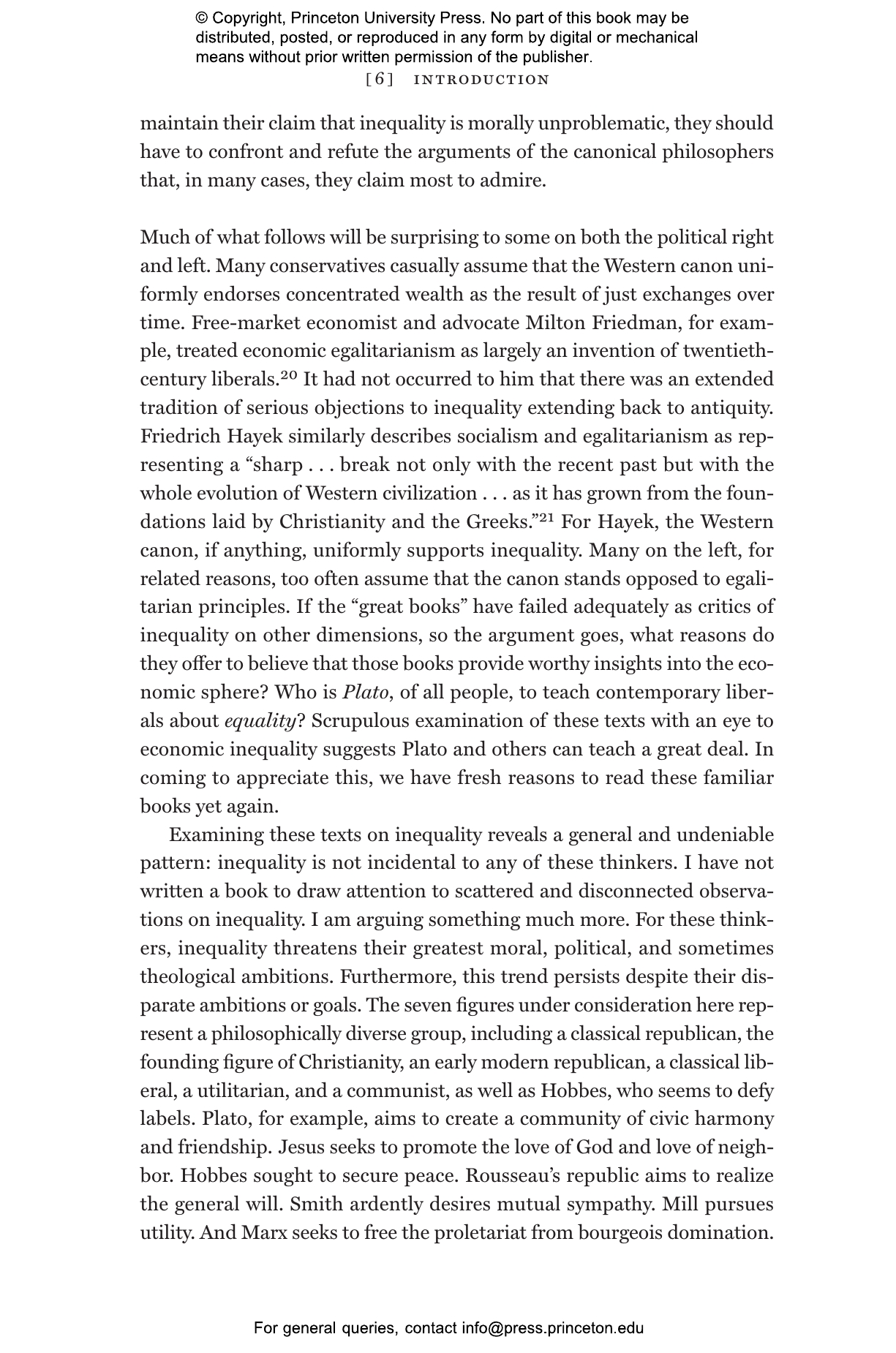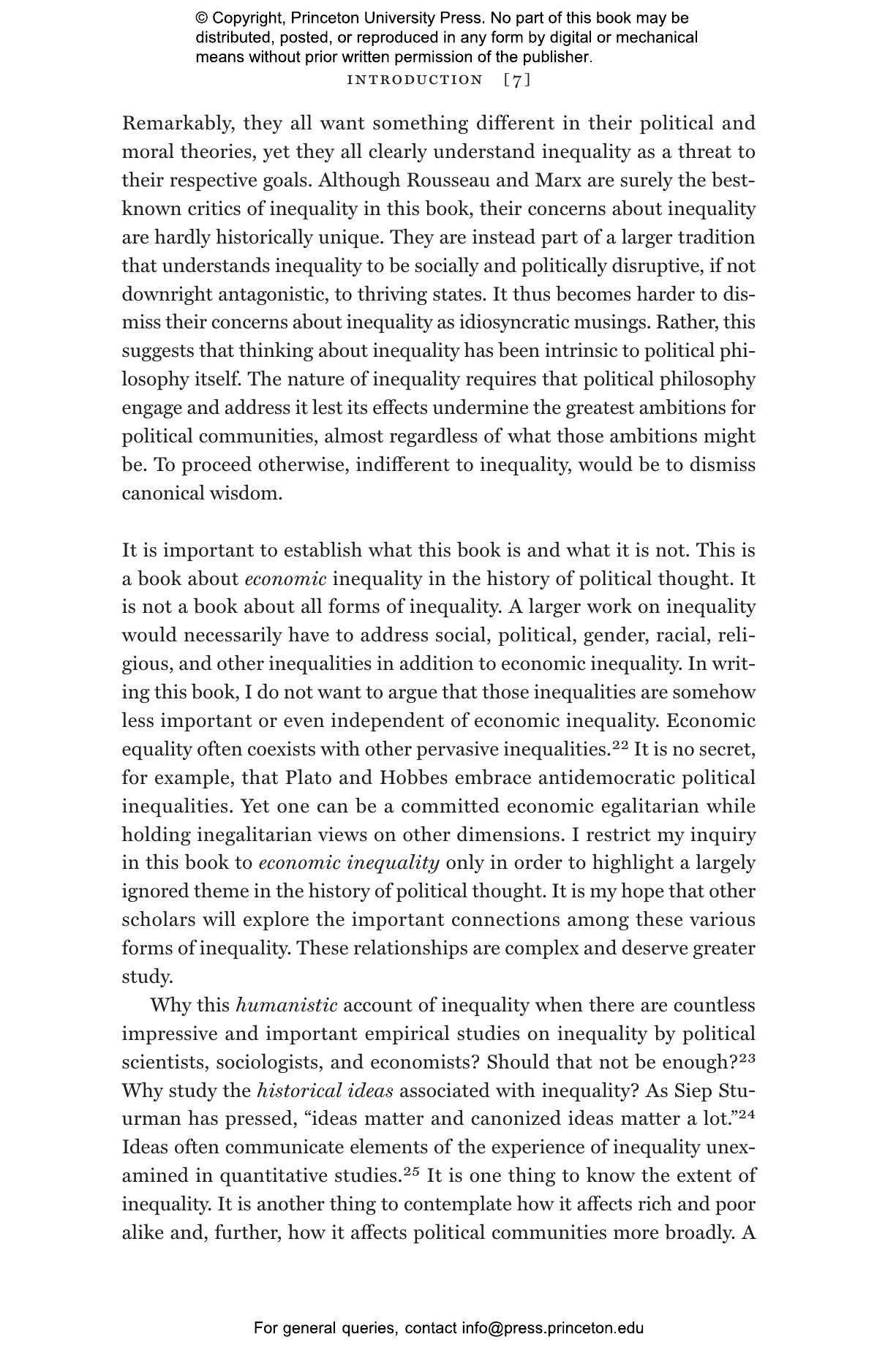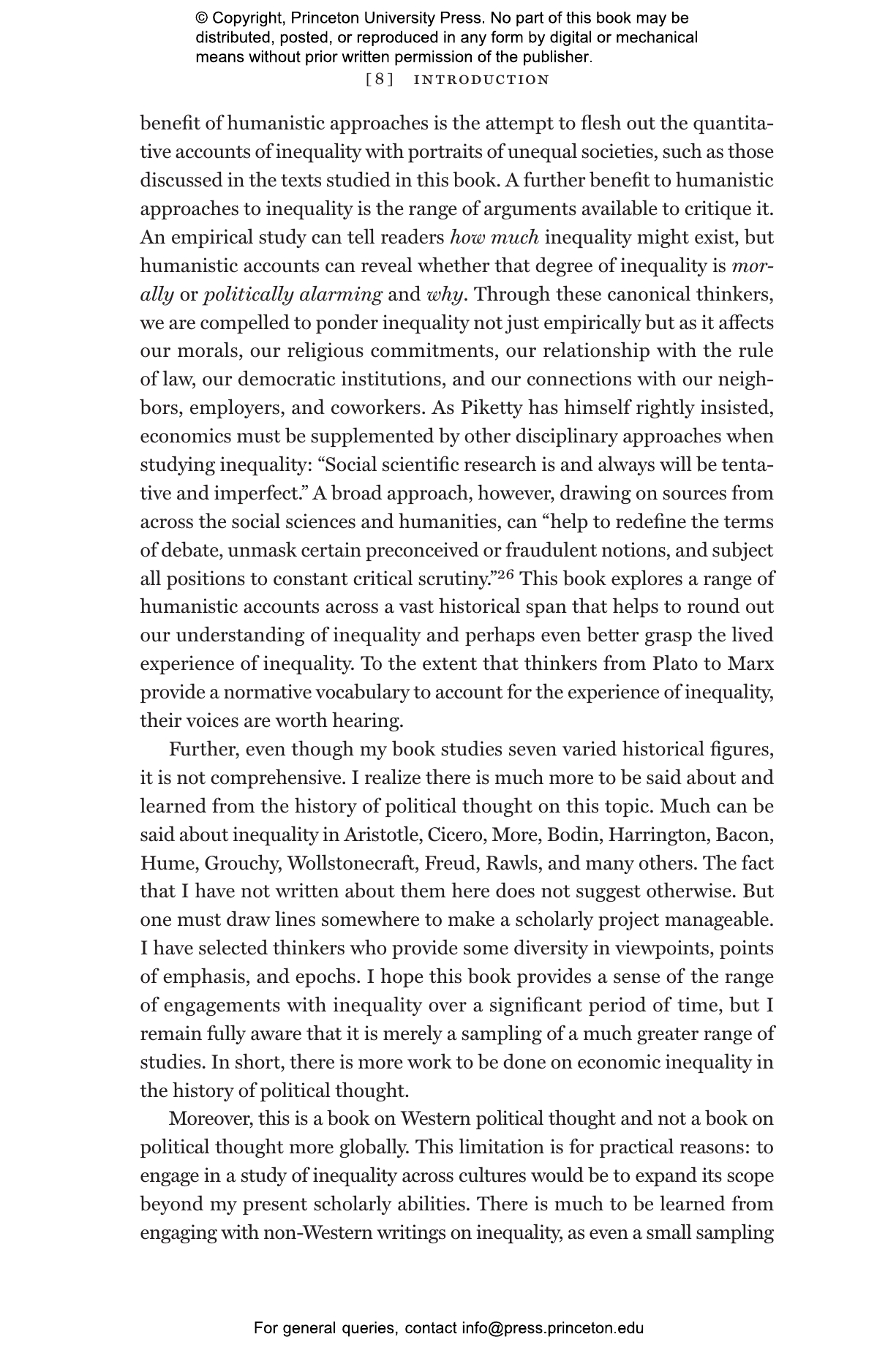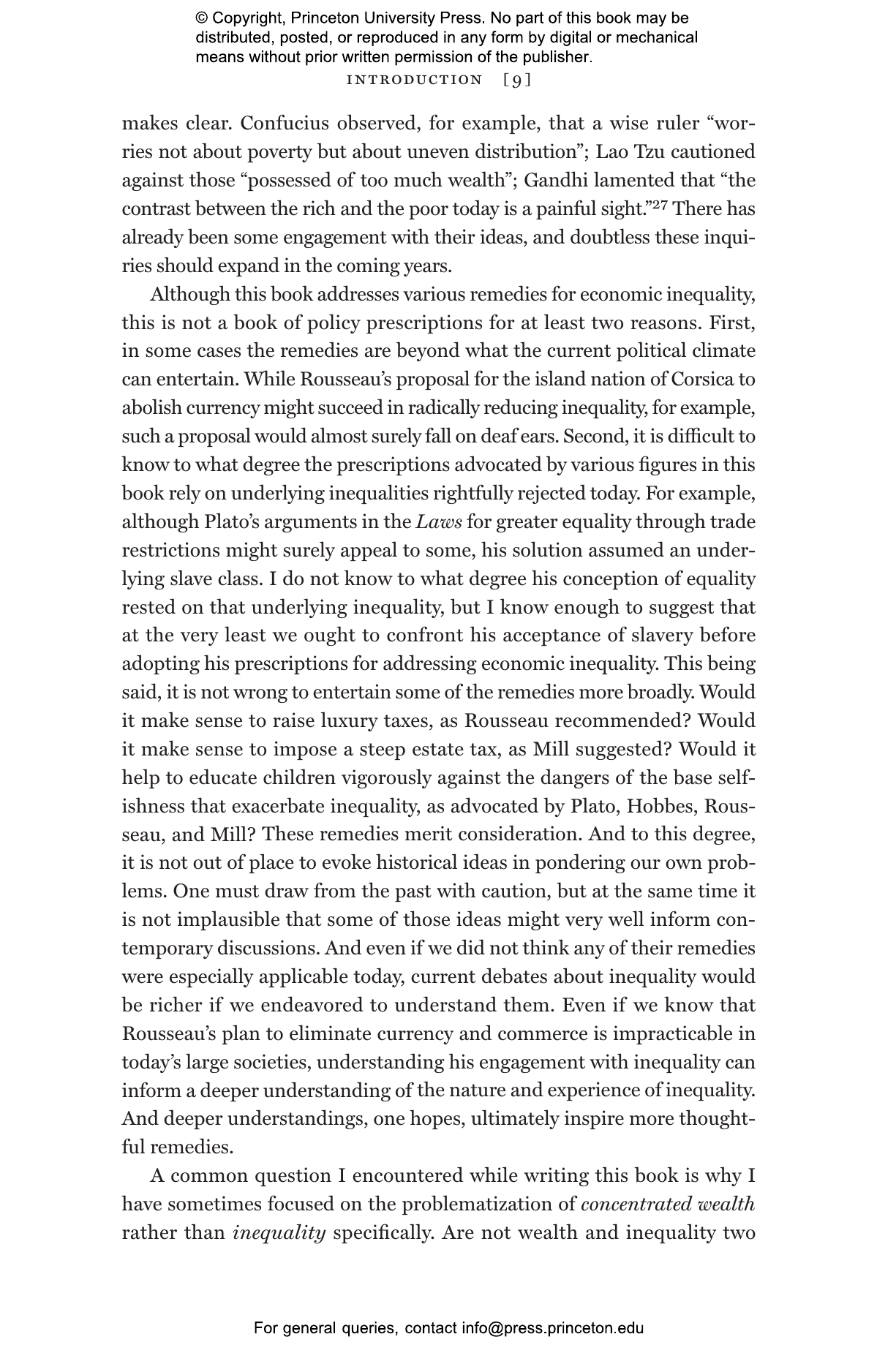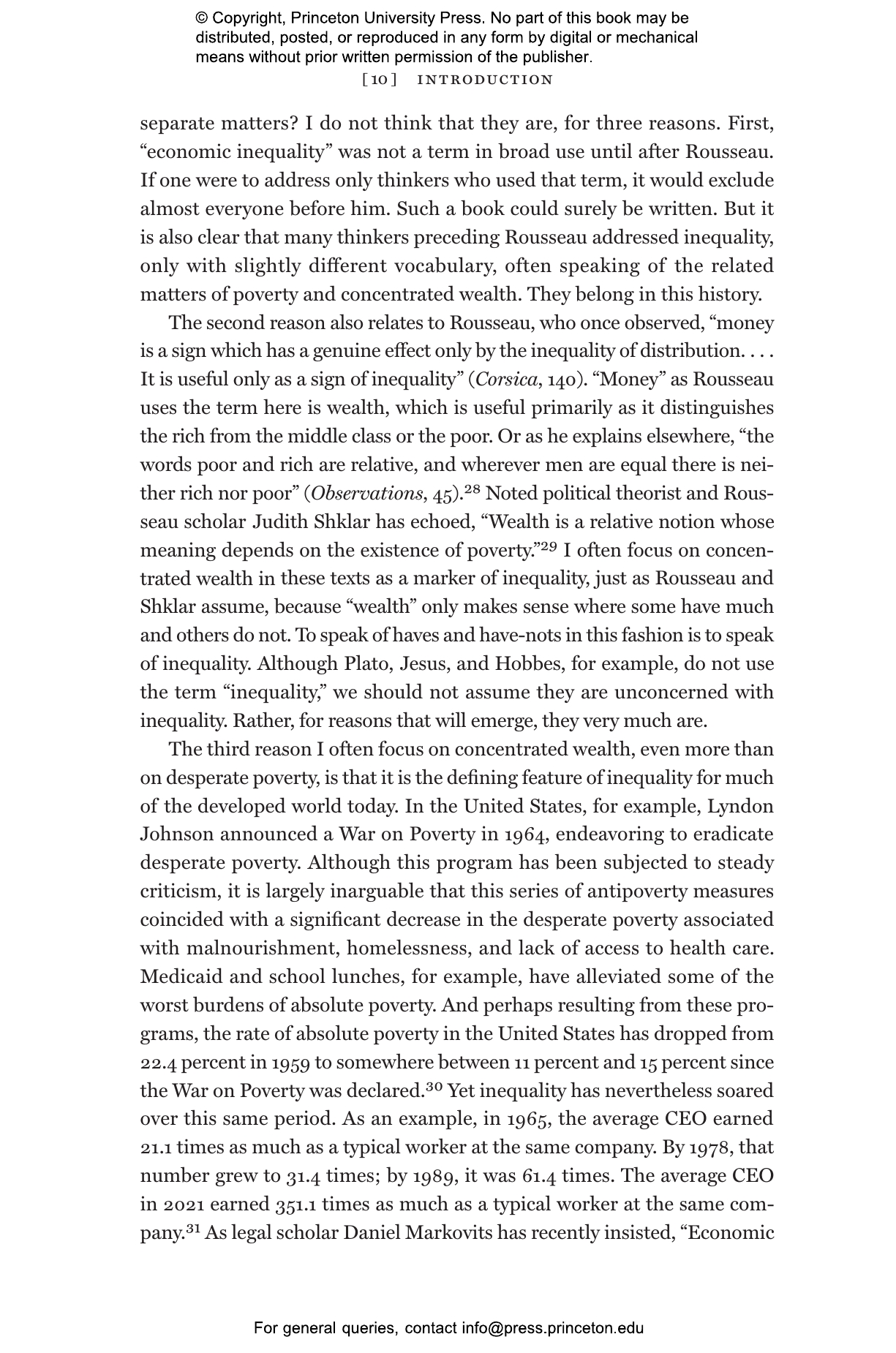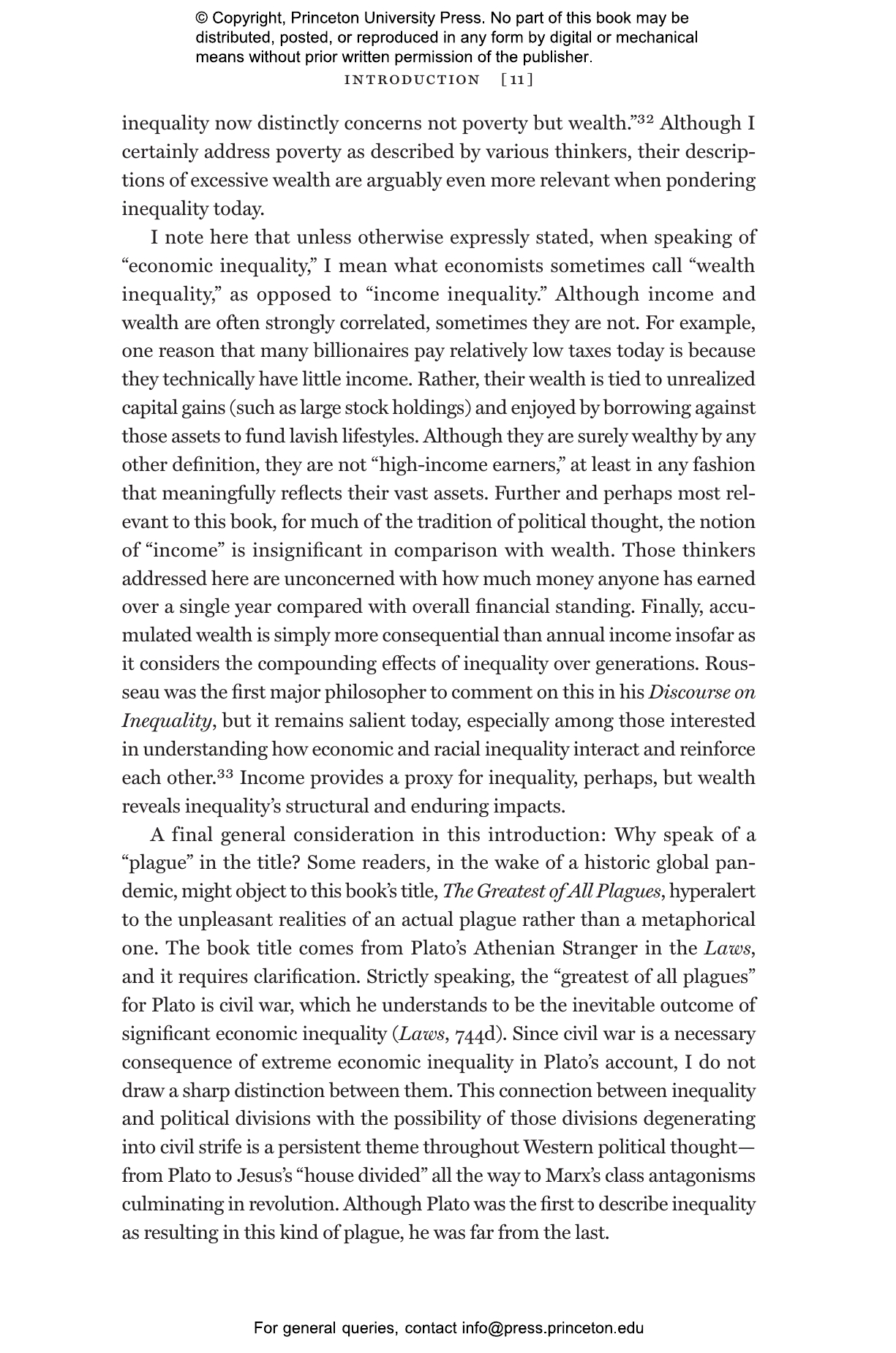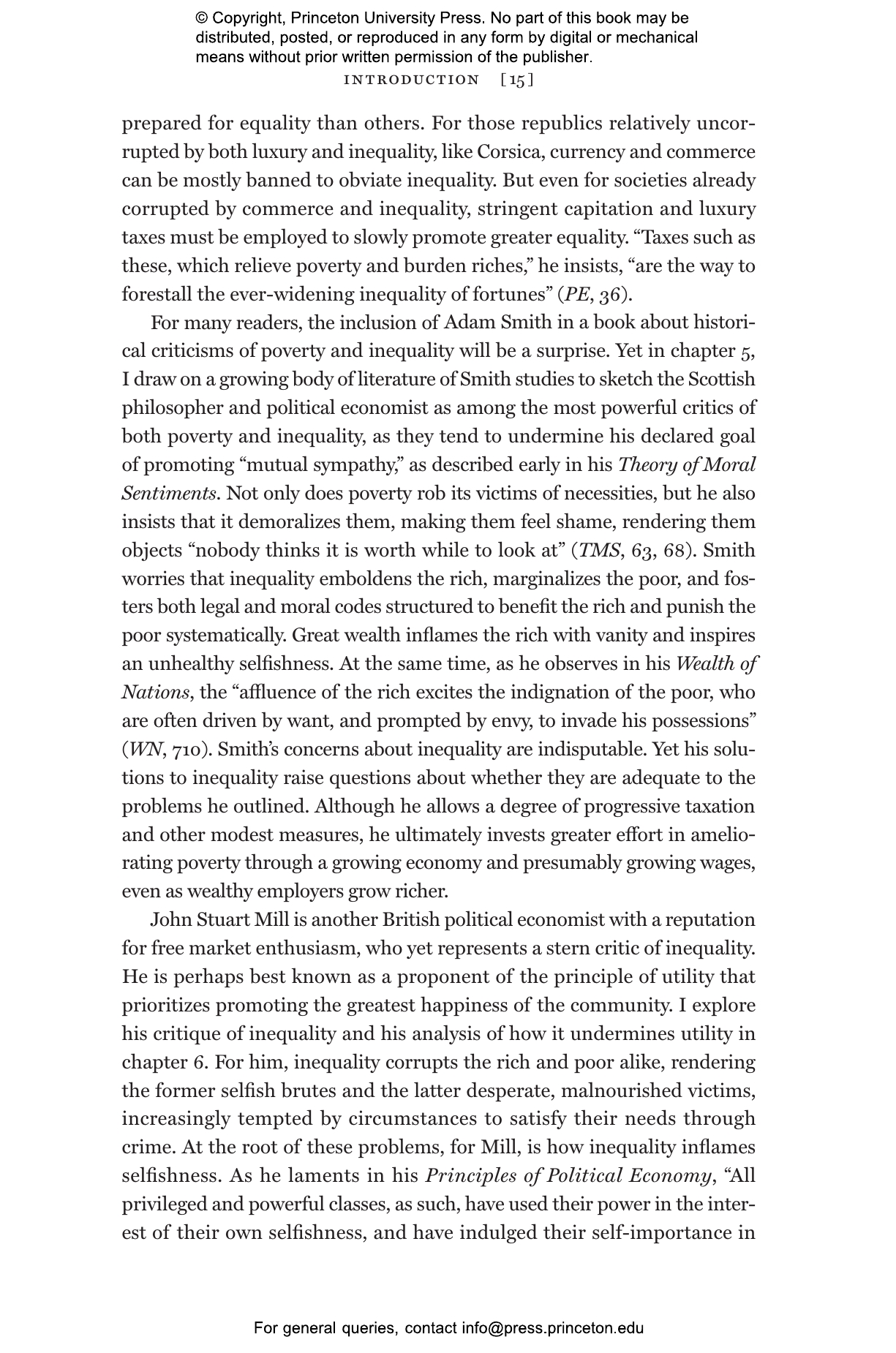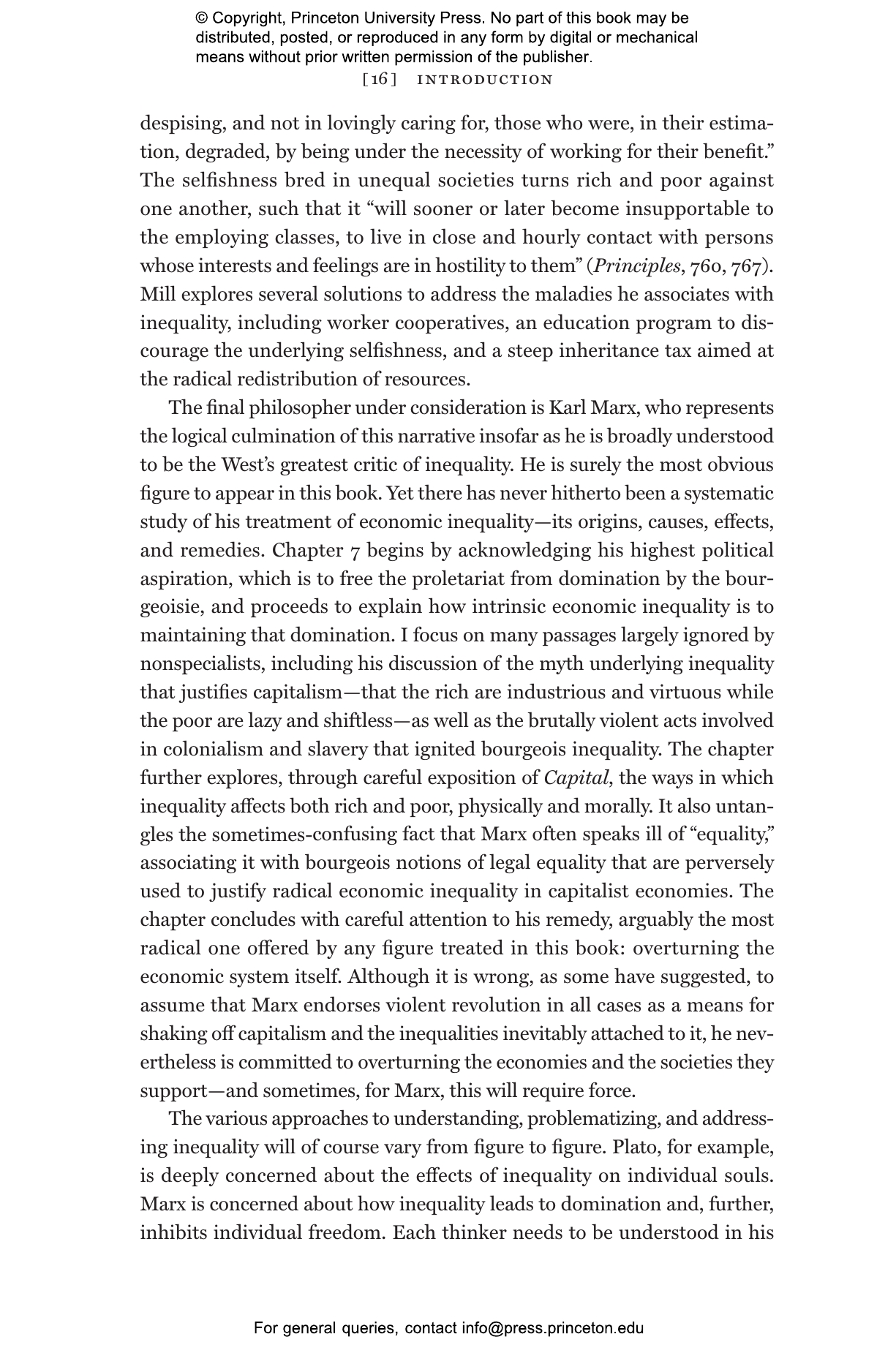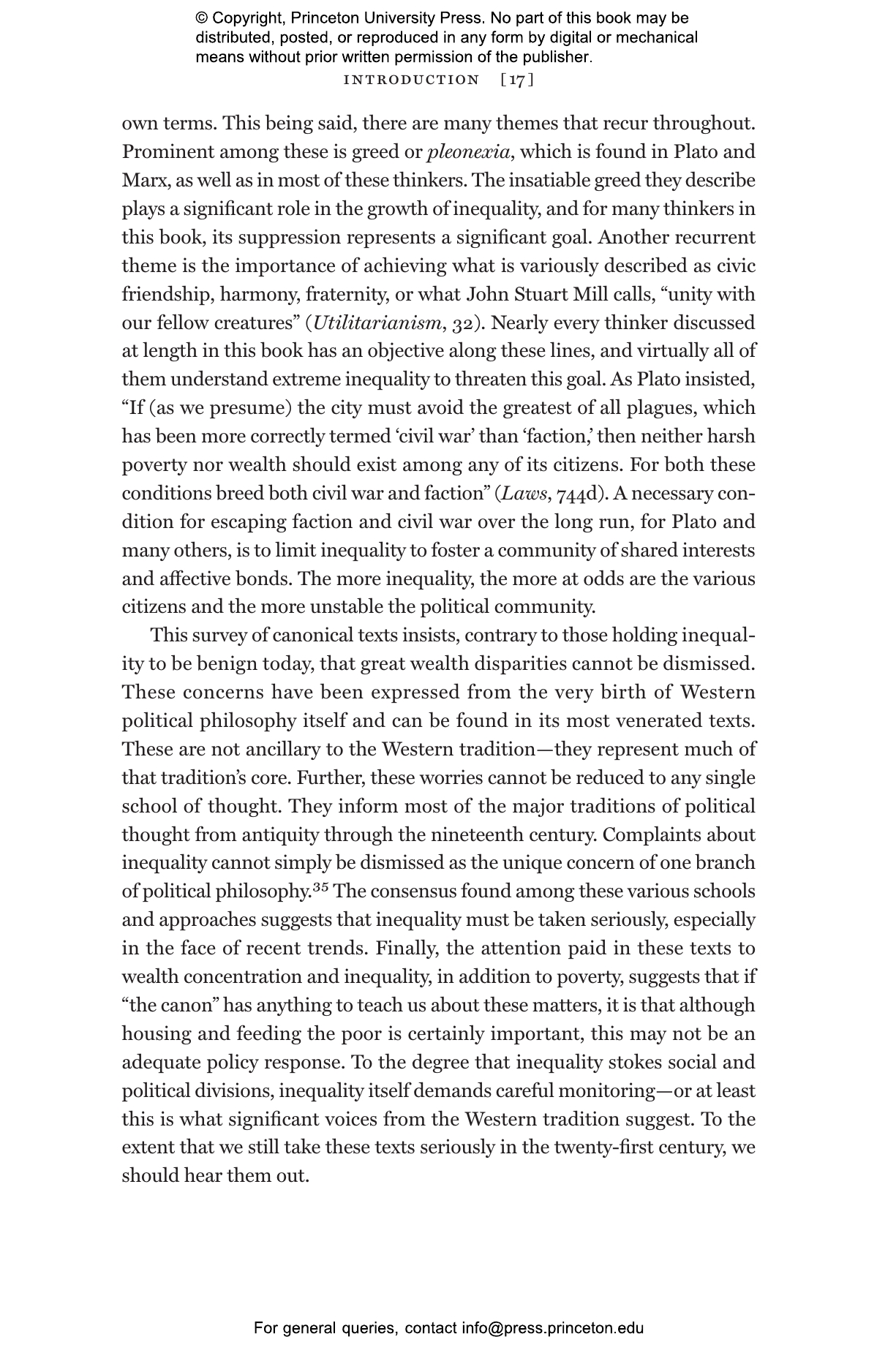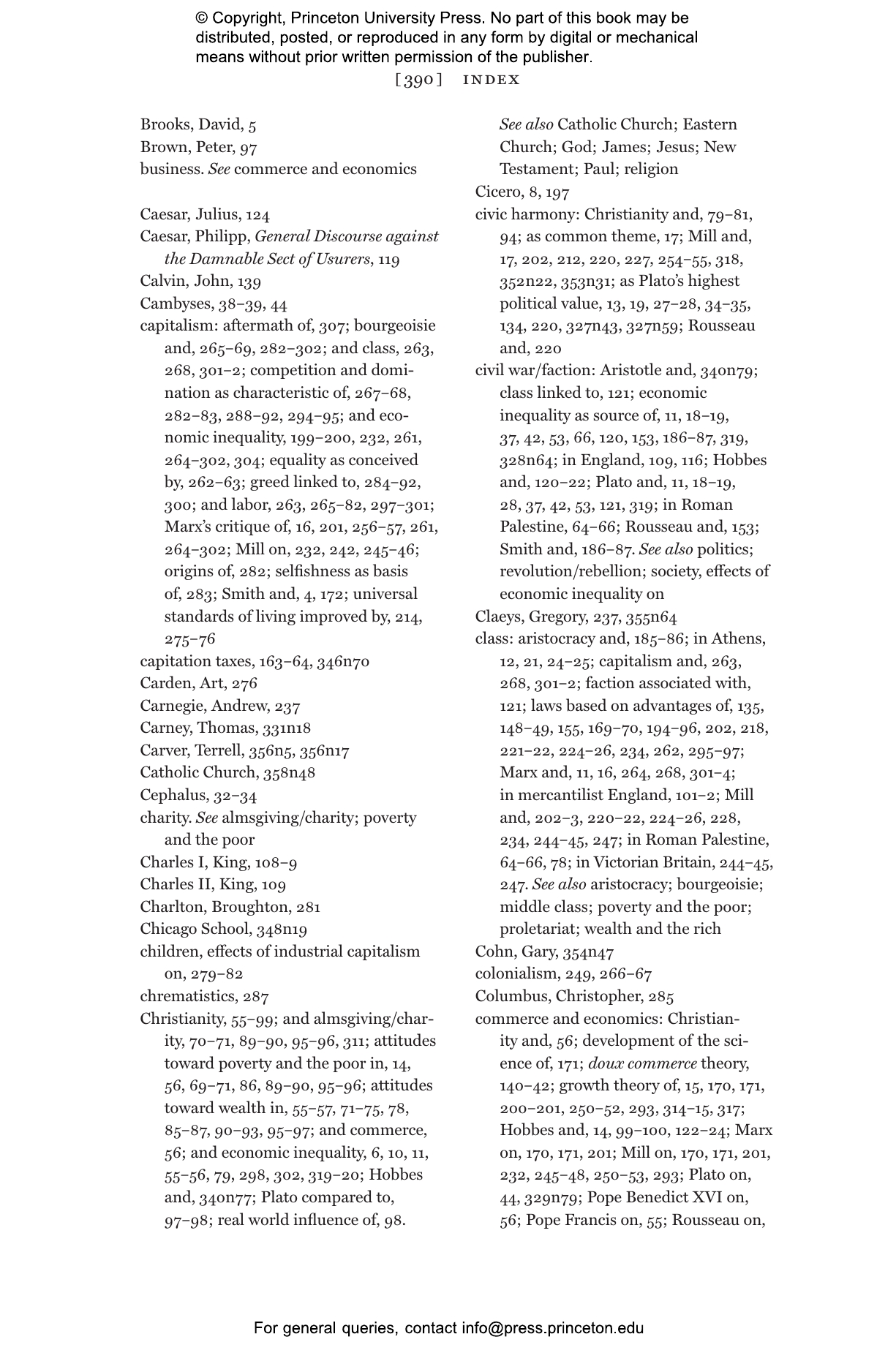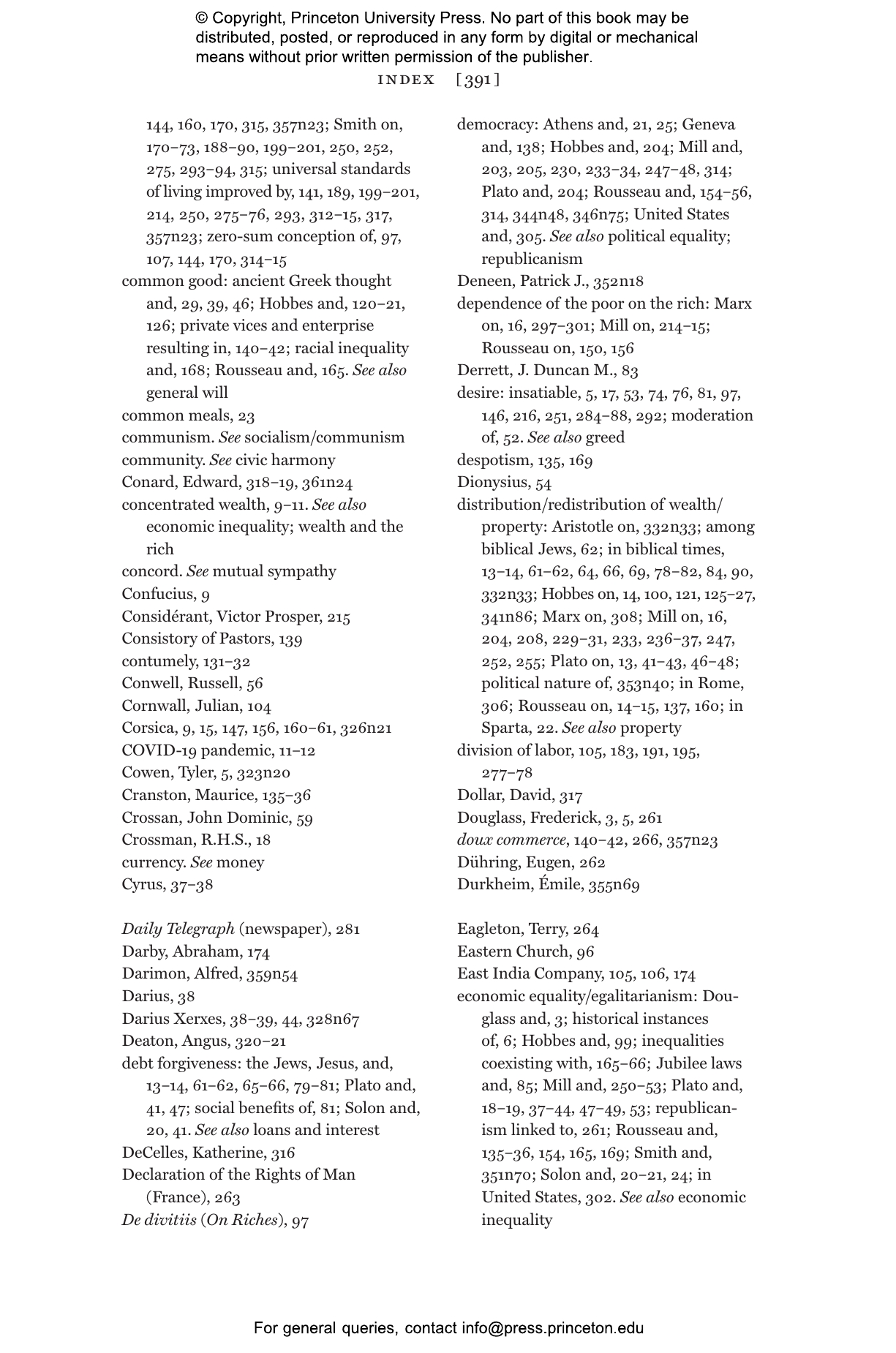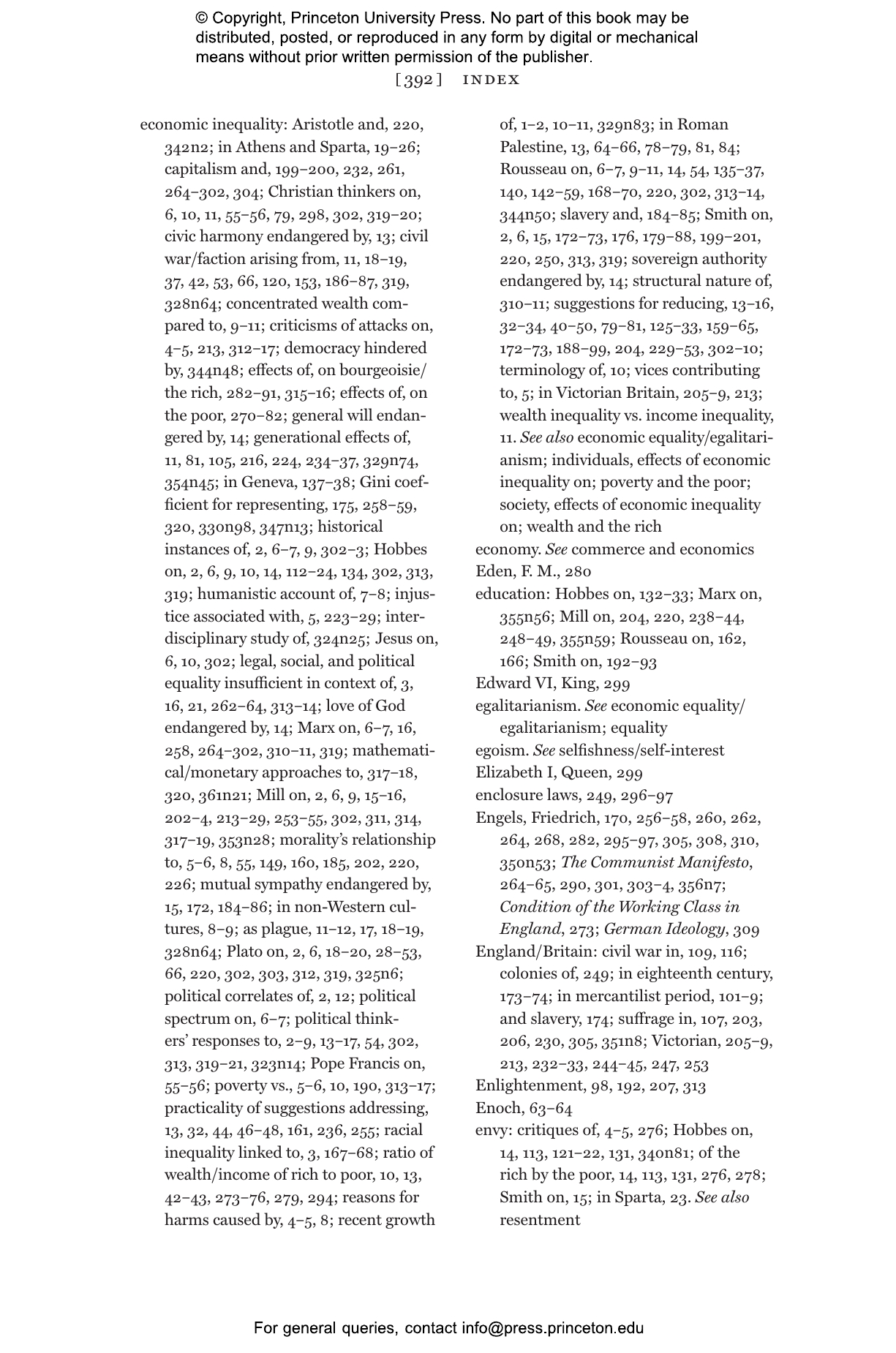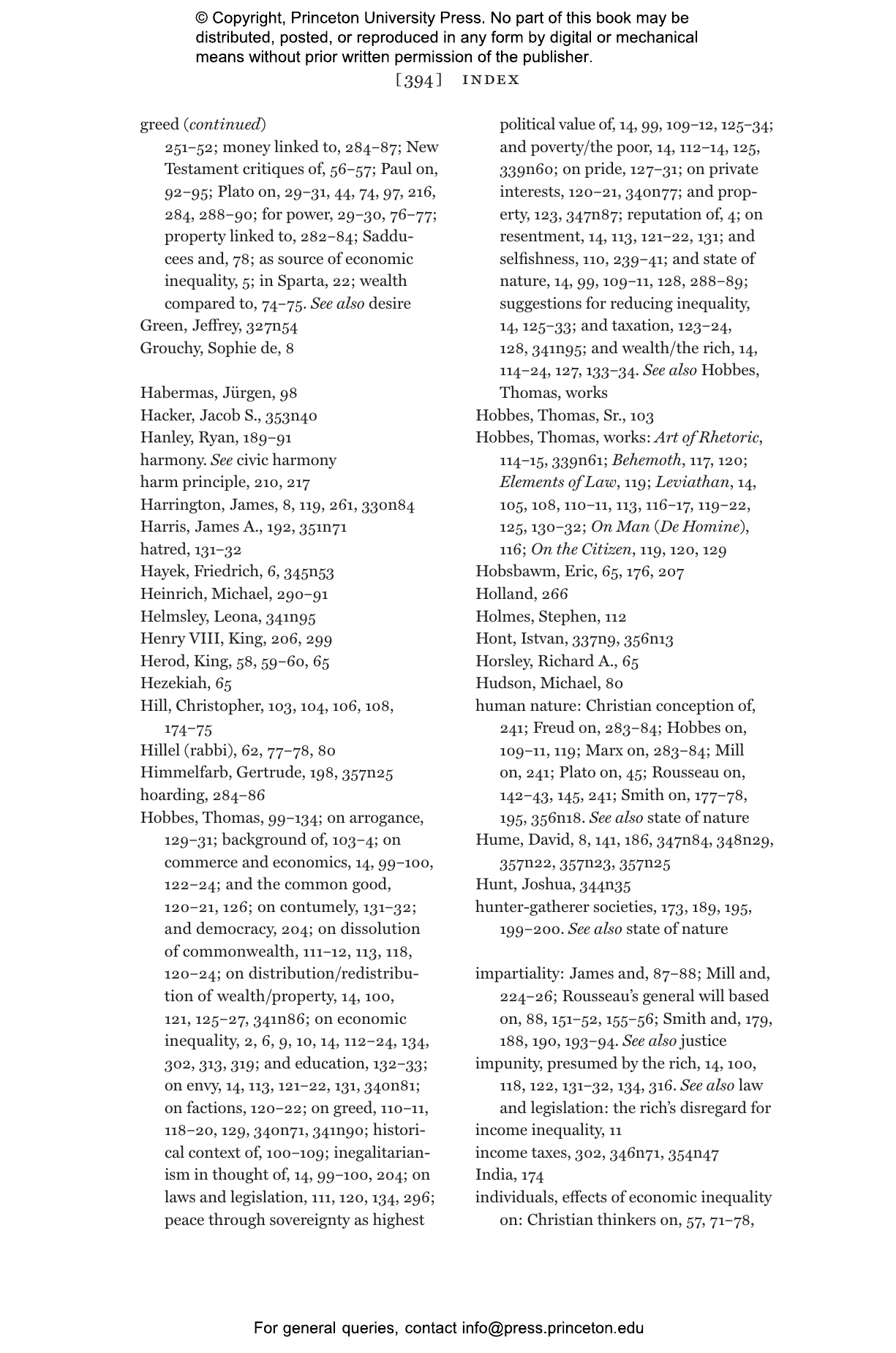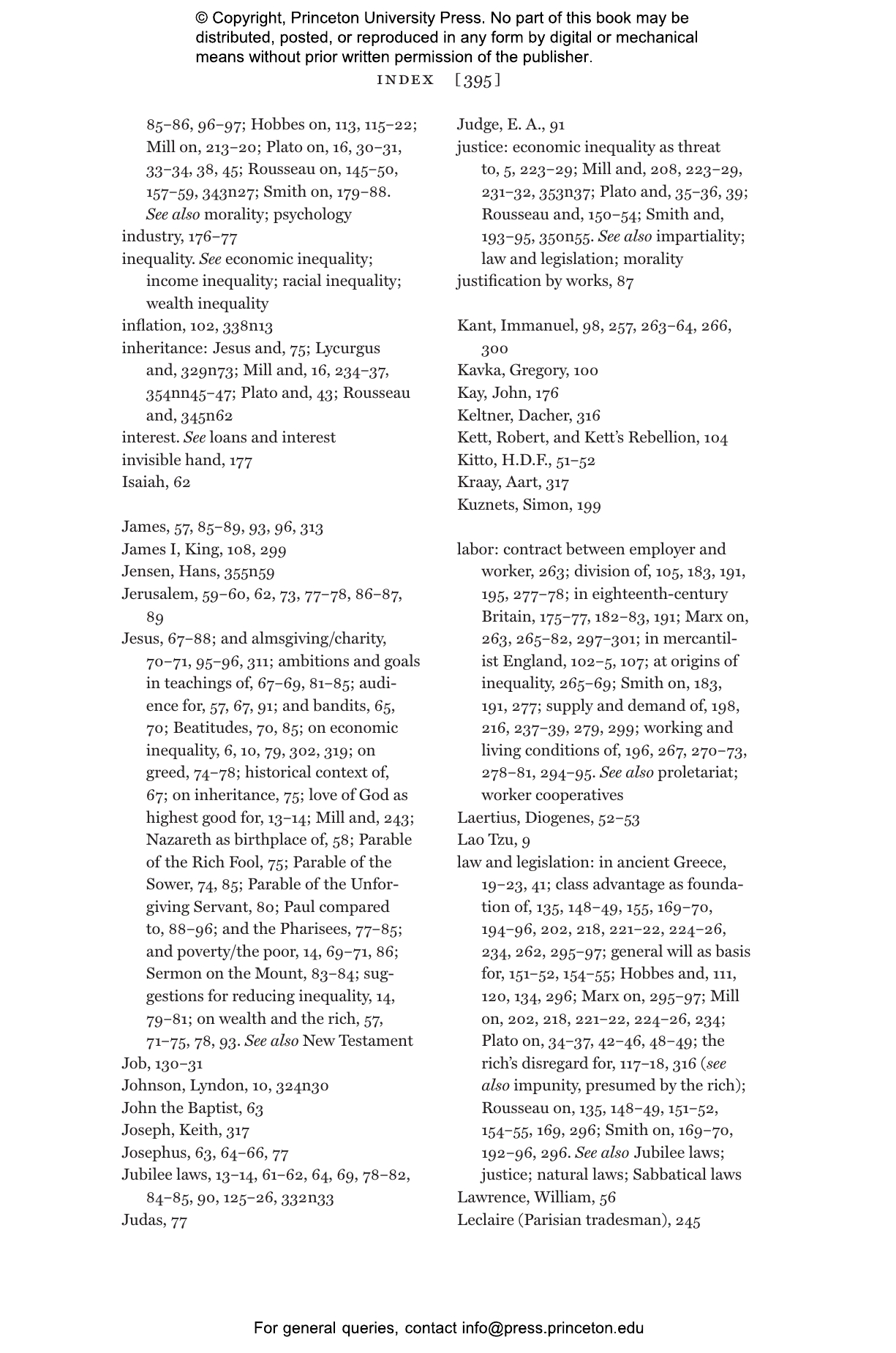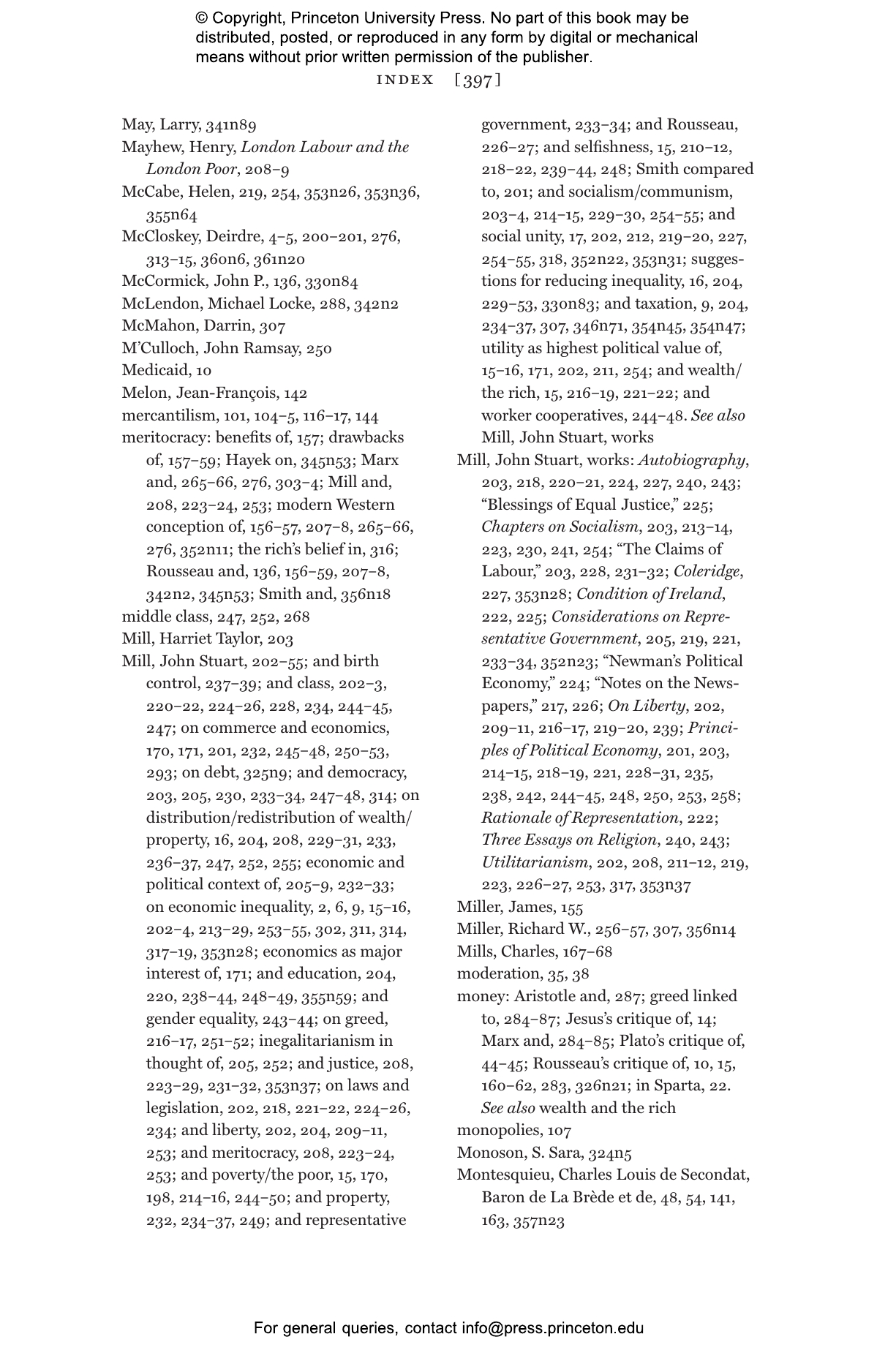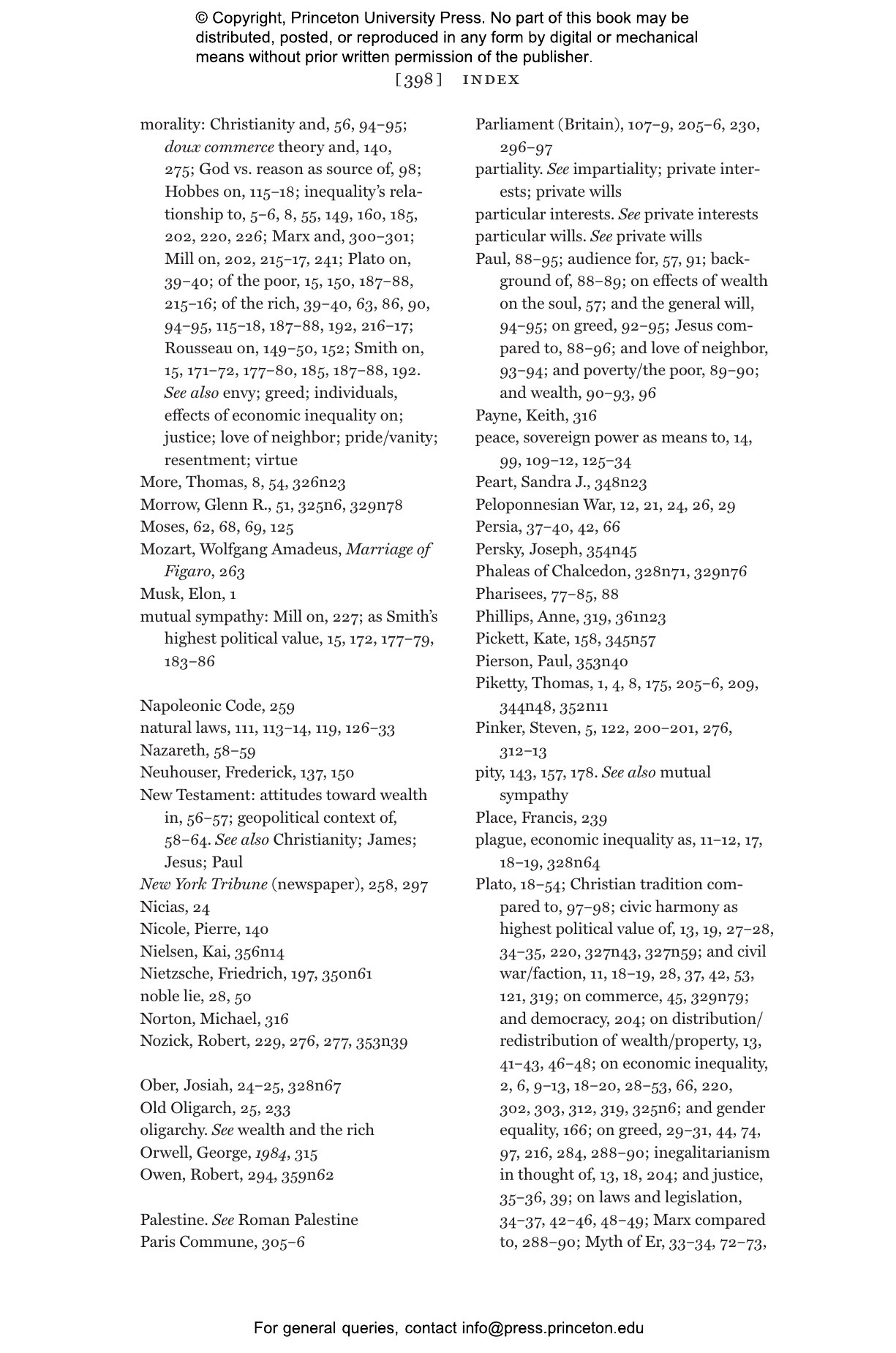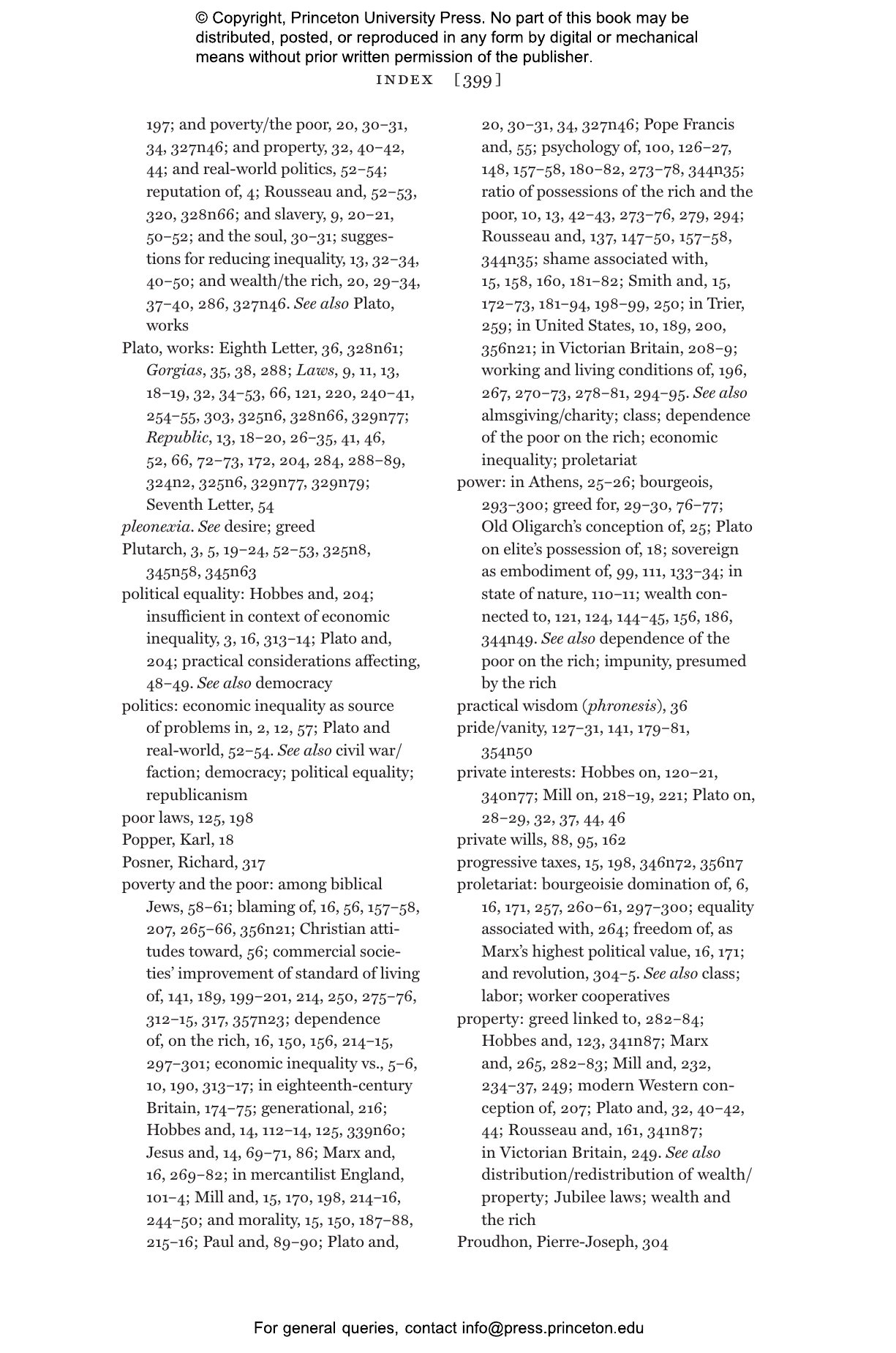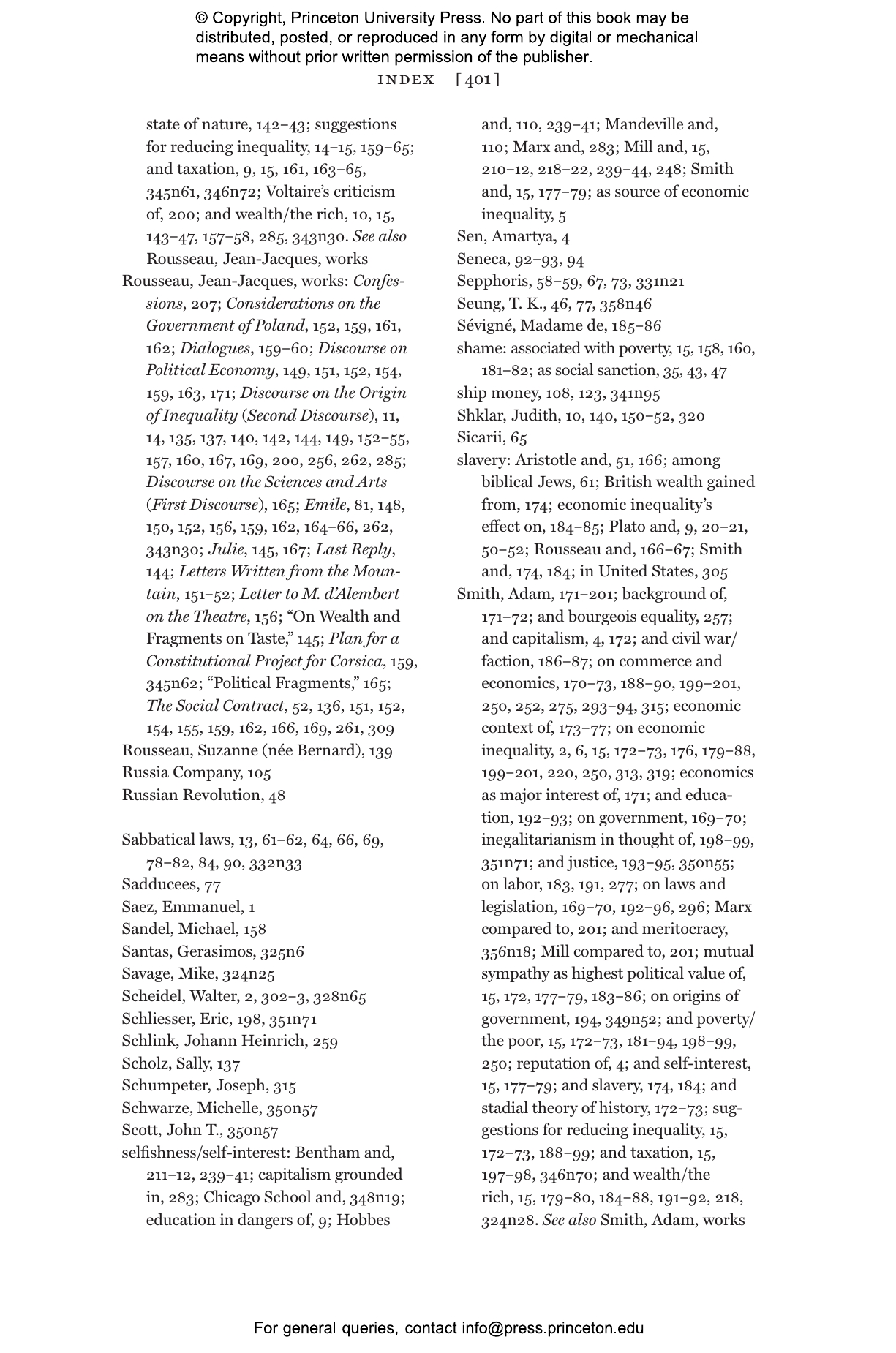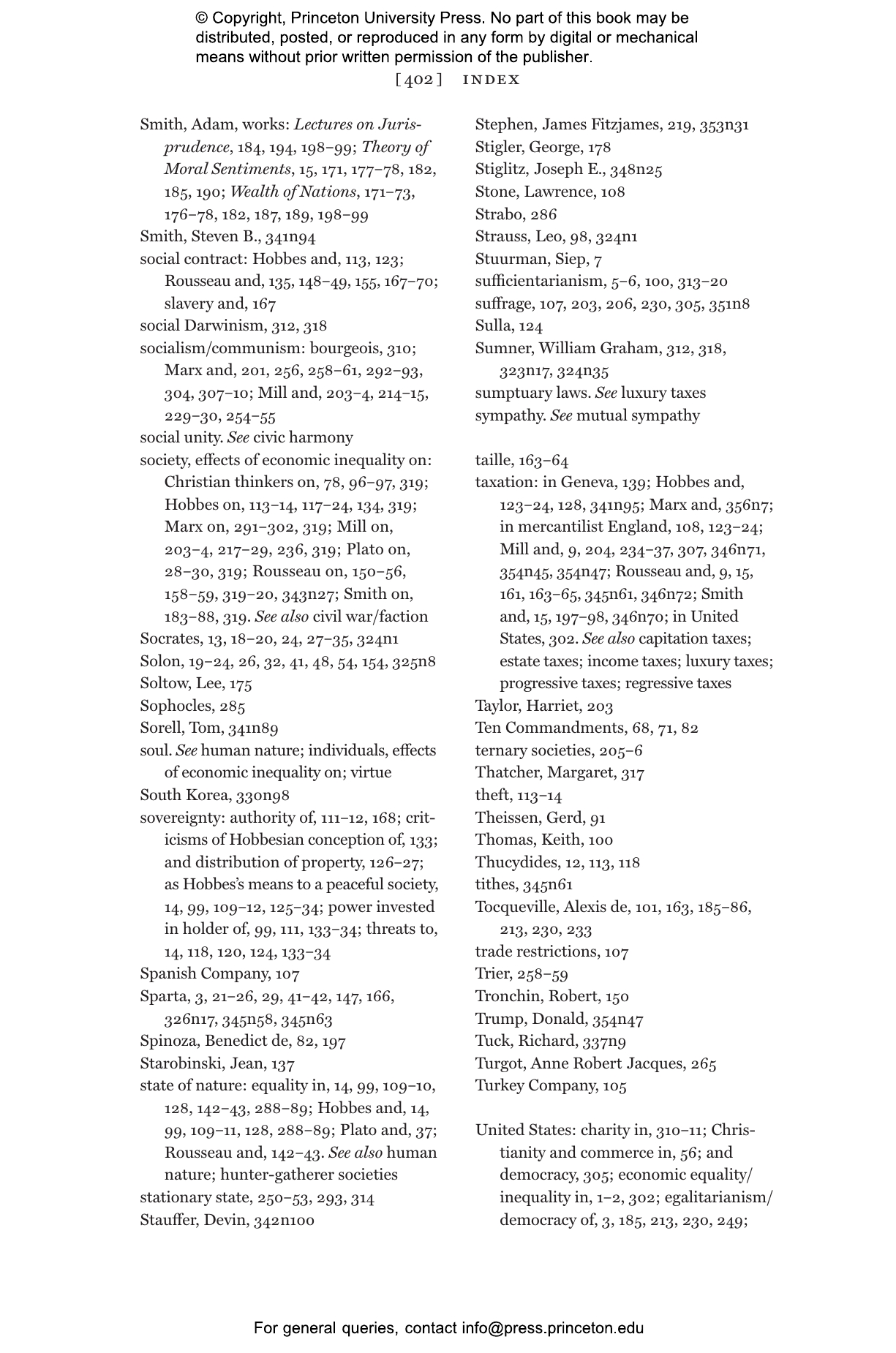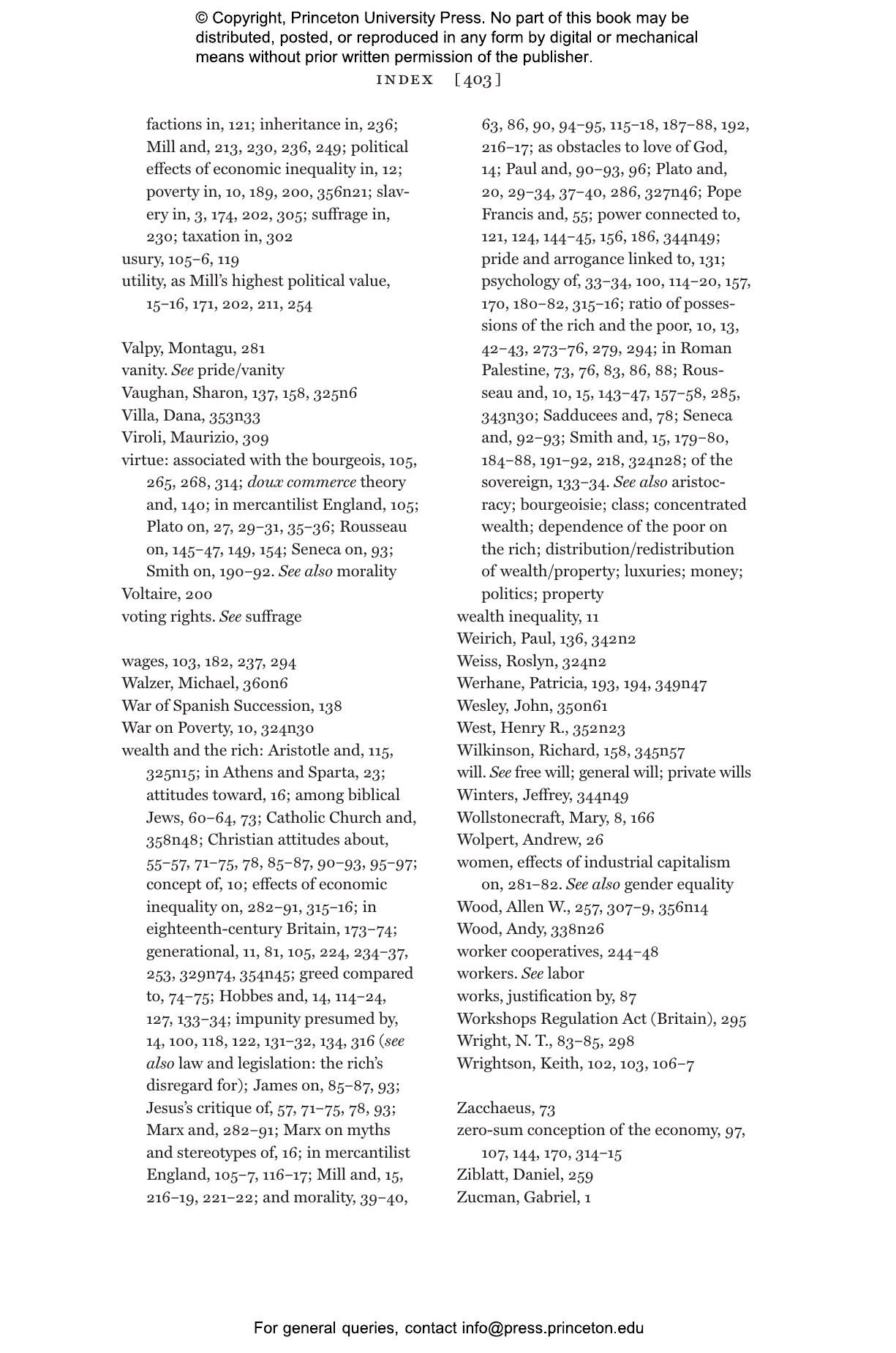Economic inequality is one of the most daunting challenges of our time, with public debate often turning to questions of whether it is an inevitable outcome of economic systems and what, if anything, can be done about it. But why, exactly, should inequality worry us? The Greatest of All Plagues demonstrates that this underlying question has been a central preoccupation of some of the most eminent political thinkers of the Western intellectual tradition.
David Lay Williams shares bold new perspectives on the writings and ideas of Plato, Jesus, Thomas Hobbes, Jean-Jacques Rousseau, Adam Smith, John Stuart Mill, and Karl Marx. He shows how they describe economic inequality as a source of political instability and a corrupter of character and soul, and how they view unchecked inequality as a threat to their most cherished values, such as justice, faith, civic harmony, peace, democracy, and freedom. Williams draws invaluable insights into the societal problems generated by what Plato called “the greatest of all plagues,” and examines the solutions employed through the centuries.
An eye-opening work of intellectual history, The Greatest of All Plagues recovers a forgotten past for some of the most timeless books in the Western canon, revealing how economic inequality has been a paramount problem throughout the history of political thought.
Awards and Recognition
- A New Statesman Best of the Academic Presses for Autumn
"Impressive…[Williams] shows that such wildly different figures all saw economic inequality as a grave political threat….He makes a persuasive case that these thinkers were right to be so troubled, and that we still have much to learn from their arguments and proposals….a welcome reminder that exploring the history of philosophy can also be an inquiry into the present world."—Nick Romeo, Washington Post
"Excellent."—Samuel Moyn, The Nation
"A Magnum Opus."—Lilly Goren, New Books Network
"I just loved the sweep of this book. It is a really comprehensive analysis of inequality in the thought of major figures in the history of political thought. . . . It’s a great contribution."—Jeffrey Church, Political Theory Review podcast
"Interesting and useful."—Choice
"Williams wants to show that economic inequality isn’t some peculiar fixation of the 21st century that can be easily dismissed by those who fancy themselves defenders of the Western canon. And in that, he succeeds magnificently."—Ben Burgis, Compact Magazine
"Williams’ thinkers confront us with powerful arguments against inequality: it degrades civilisation because it rewards greed at the expense of the community, ultimately destroying any basis for social cooperation and respect for the rule of law."—Justin H. Vassallo, UnHerd
“Many are concerned about the yawning wealth gaps in America today. In this excellent and timely book, David Lay Williams shows that such concerns are not new but have worried philosophers of all stripes for more than two thousand years. You don’t have to be an egalitarian to worry that such inequalities can destroy our polities.”—Angus Deaton, author of Economics in America: An Immigrant Economist Explores the Land of Inequality
“David Lay Williams has done us all a service by forcing a confrontation with what has long been hiding in plain sight: a persistent critique of the perils of economic inequality at the very heart of the Western intellectual tradition. A meticulous excavation in the history of political thought, this is also a book very much for our own times.”—Darrin M. McMahon, author of Equality: The History of an Elusive Idea
“This wonderful book demonstrates how much the history of political thought has to teach us about the things that matter most. Williams expands our understanding of the viciousness of inequality, presenting a new way of describing a very old problem.”—Teresa M. Bejan, author of Mere Civility: Disagreement and the Limits of Toleration
“This is an amazing and intellectually challenging book. Based on a rich historical analysis of philosophical writing, Williams’s argument that economic inequality is the ‘greatest of all plagues’ surely resonates at our moment of deep challenges to the combination of capitalism and democracy that has been at the center of our economic progress, political stability, and freedom for the past two centuries.”—Carol Graham, author of The Power of Hope: How the Science of Well-Being Can Save Us from Despair
“In this inspiring book, Williams shows us that if inequality has been around for a long time, the same is true for the critiques of it, and sometimes from surprising corners. In an era where scholars have done much to document the history of inequality, this book provides an innovative look into the evolution of thinking about what inequality means for a society.”—David Stasavage, author of The Decline and Rise of Democracy: A Global History from Antiquity to Today
“David Lay Williams provides us with a sweeping intellectual history of economic inequality from Plato to Marx that persuasively argues for its centrality for political theory. This insightful book explains in fascinating detail why and how great wealth disparities should influence the convictions about justice of people from diverse religious, political, and economic backgrounds.”—Michelle Schwarze, author of Recognizing Resentment: Sympathy, Injustice, and Liberal Political Thought
“Economic inequality has always been with us to some degree, and as this excellent and meticulously researched book demonstrates, it has always troubled many among us, including some of the greatest thinkers in Western history from Plato to Adam Smith. Inequality matters.”—Guido Alfani, author of As Gods among Men: A History of the Rich in the West


